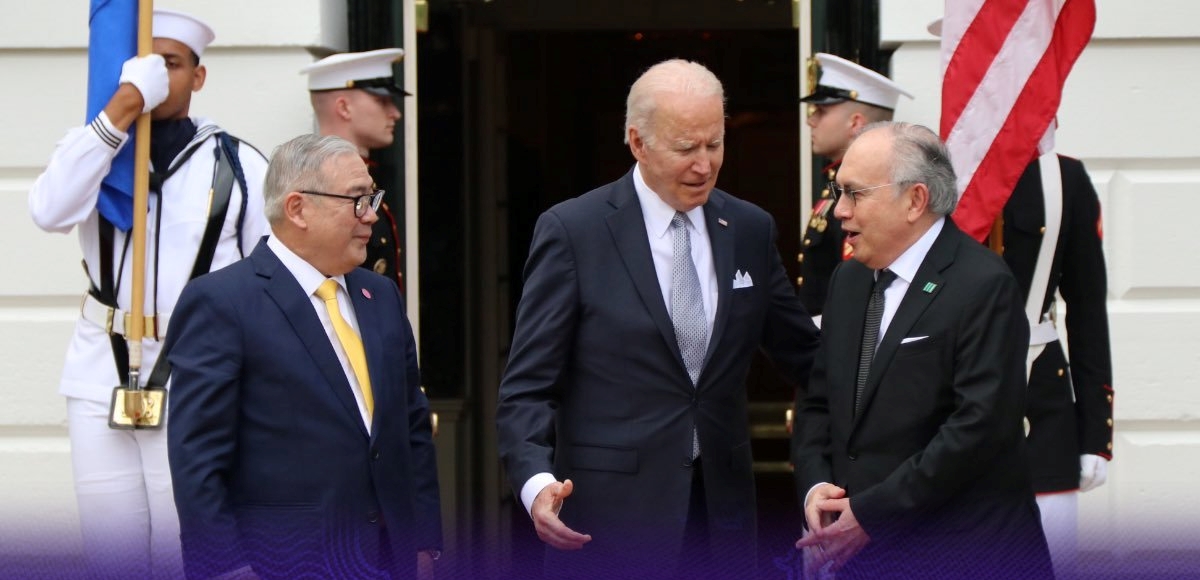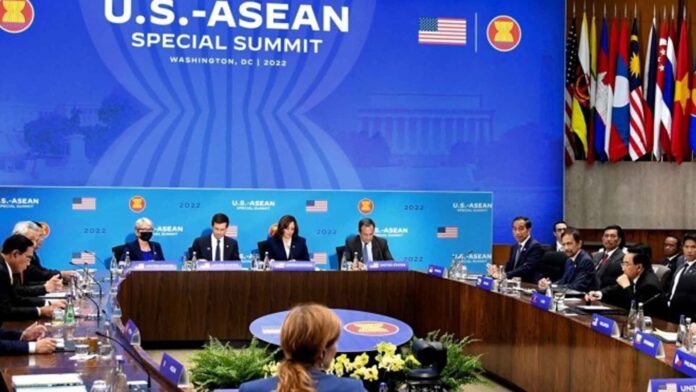The success of the recent US-Asean Special Summit sends a strong message of pushing for deeper economic engagement between the US and Association of Southeast Asian Nations (Asean) member states, especially on more jobs and investments for the Philippines.
Hosted by US President Joe Biden in Washington D.C. on May 12 and 13, the Philippine Embassy in the US said the special summit saw the US commitment to strengthen and expand its engagement with member states of the Asean.
“Consistent with the Embassy’s message, this deeper economic engagement strengthens the signals to American companies and industries that now is the right time to invest in the Philippines,” the Embassy said in an interview.
The US-Asean engagement, it said, focuses on a wide range of areas from political and security cooperation, to fighting global pandemics such as Covid-19, and promoting people-to-people connections.
The Embassy said US support and investment, particularly on clean energy transition, including nuclear energy, and sustainable infrastructure will help transform communities and enable inclusive economic growth in the country.
“Filipinos stand to benefit from cheaper electricity rates brought on by more alternative power sources. Furthermore, digital transformation will positively impact our general population as it brings ease and support to Filipino micro, small, and medium enterprises in doing commerce,” the Philippine Embassy said.
A modern Philippine digital economy, it added, will open opportunities to a wider market access not only within the Philippines, but also in the Asean region.
“The Philippines, as a member of Asean and a long-standing ally of the United States, stands ready to work closely with both the US and its fellow Asean members to realize the many benefits that could be derived from this enhanced engagement,” the Embassy said.
The US-Asean Special Summit, in a joint resolution, committed to continue cooperation for promoting trade and investment and facilitating resilient global supply chains and seamless regional connectivity, including for essential goods such as medical supplies, medicines, vaccines, food and agricultural products, commodities, high-tech products, and other essential supplies and services, contributing to sustainable economic recovery and resilience in the region.
“We seek to deepen our collaboration on transport connectivity, including air, land, maritime, and transport facilitation program to advance sustainable infrastructure development and support emerging technologies, including electric vehicles,” a paragraph of the Joint Vision Statement read.\

SCS: Sea of peace
Meanwhile, the joint resolution signified its reaffirmation of the importance of the full and effective implementation of the Declaration on the Conduct of Parties in the South China Sea (DOC), signed by Asean member states and China in 2002 while both sides continue negotiations on a Code of Conduct (COC) on the disputed waters.
“Both Asean and the United States recognize the benefits of having the South China Sea as a sea of peace, stability and prosperity given that a significant portion of global maritime trade passes through the South China Sea, and therefore underscore the need to reduce tensions and the risks of accidents, miscalculations and misunderstandings in the area,” the Embassy said.
Noting the United Nations (UN) General Assembly Resolution A/RES/75/239 emphasizing in the preamble, the universal and unified character of the 1982 UN Convention on the Law of the Sea (UNCLOS), Asean and US underscored the importance of the full and effective implementation of the 2002 DOC in its entirety.
“We emphasized the need to maintain and promote an environment conducive to the Code of Conduct in the South China Sea negotiations. We welcome further progress towards the early conclusion of an effective and substantive COC consistent with international law, including the 1982 UNCLOS,” the resolution read.
It added: We emphasize the importance of practical measures that could reduce tensions and the risk of accidents, misunderstandings, and miscalculation. We stressed the importance of undertaking confidence building and preventive measures to enhance, among others, trust and confidence amongst parties. We further reaffirmed the need to pursue peaceful resolution of disputes in accordance with universally recognized principles of international law, including the 1982 UNCLOS.
The US-Asean Special Summit was held for the first time in Washington as the White House reaffirms its “enduring commitment to Southeast Asia and underscores the importance of Asean-US cooperation in ensuring security, prosperity, and respect for human rights”. (PNA)




